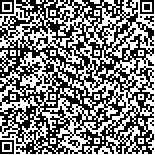| Quote
: |
黄立权,张志荣,江荣林,王坤根.四君子汤对气虚型急性胃肠功能损伤小鼠小肠Cajal间质细胞及黏膜上皮跨膜蛋白claudin-2、occludin表达的影响[J].湖南中医药大学学报英文版,2020,40(6):685-688.[Click to copy
] |
|
| |
|
|
| This paper
:Browser 3010times Download 1131times |
| 四君子汤对气虚型急性胃肠功能损伤小鼠小肠Cajal间质细胞及黏膜上皮跨膜蛋白claudin-2、occludin表达的影响 |
| 黄立权,张志荣,江荣林,王坤根 |
| (浙江中医药大学附属第一医院重症医学科, 浙江 杭州 310000) |
| 摘要: |
| 目的 观察四君子汤对气虚型急性胃肠功能损伤小鼠小肠Cajal间质细胞(interstitial cells of Cajal,ICC)及黏膜上皮跨膜蛋白claudin-2、occludin表达的影响。方法 将48只ICR小鼠随机分为正常组(n=12)和实验组(n=36),实验组制备成标准气虚型急性胃肠功能损伤小鼠模型,再随机分为模型组、四君子汤组、自愈组,每组12只。正常组和模型组小鼠于造模成功后处死;四君子汤组小鼠给予四君子汤灌胃,自愈组小鼠等量生理盐水灌胃,每天1次,连续灌胃7 d,禁食不禁水12 h后处死。留取各组距离回盲部2 cm的小肠组织,行HE染色和免疫组化,观察小鼠肠道ICC中c-kit及肠黏膜上皮跨膜蛋白claudin-2、occludin表达的变化。结果 HE染色显示四君子汤治疗后小鼠肠黏膜损伤明显改善;免疫组化显示:与正常组比较,造模后实验组各组c-kit及跨膜蛋白claudin-2、occludin表达明显下降(P<0.01)。与模型组比较,四君子汤组和自愈组c-kit及肠黏膜上皮跨膜蛋白claudin-2、occludin表达明显上升(P<0.01);与自愈组比较,四君子汤组c-kit及肠黏膜上皮跨膜蛋白claudin-2、occludin表达明显上升(P<0.01)。结论 四君子汤可通过增加c-kit、claudin-2、occludin的表达改善肠道黏膜通透性和肠动力,以治疗气虚型急性胃肠功能损伤。 |
| 关键词: 急性胃肠功能损伤 动物模型 跨膜蛋白 气虚型 四君子汤 |
| DOI:10.3969/j.issn.1674-070X.2020.06.008 |
| Received:January 01, 2020 |
| 基金项目:浙江省中医药科学研究基金项目(2020ZB068);中央百千万人才工程(岐黄工程)第六批全国老中医药专家学术经验继承工作。 |
|
| Effects of Sijunzi Decoction on the Intestinal Mucosal Interstitial Cells of Cajal and Transmembrane Proteins Claudin-2 and Occluding Expression in Acute Gastrointestinal Impairment Mouse of Qi-deficiency |
| HUANG Liquan,ZHANG Zhirong,JIANG Ronglin,WANG Kungen |
| (Department of Critical Care Medicine, The First Affiliated Hospital of Zhejiang Chinese Medicine University, Hangzhou, Zhejiang 310000, China) |
| Abstract: |
| Objective To observe the effect of Sijunzi Decoction on the expression of interstitial cells of Cajal (ICC) and intestinal mucosal epithelial transmembrane proteins claudin-2, occludin in acute gastrointestinal impairment mouse of Qi-deficiency. Methods A total of 48 ICR mice were randomly divided into a normal group (n=12) and an experimental group (n=36). The experimental group was prepared into a standard acute gastrointestinal impairment mouse animal model of Qi-deficiency, and then randomly divided into a model group, a Sijunzi Decoction group, and a self-healing group (n=12 in each group). The mice in the normal group and the model group were sacrificed after successfully modeling. Mice in the Sijunzi Decoction group were treated by gavage with Sijunzi Decoction, and mice in the self-healing group were given the equal saline, once a day, for continuous 7 days. They were killed after 12 days’ fasting food but not water. The small intestine tissue 2 cm away from ileocecum were retained. Then HE staining and immunohistochemistry were performed to observe the changes of c-kit in intestinal ICC and intestinal mucosal epithelial transmembrane proteins claudin-2 and occludin in mice. Results HE staining showed that the intestinal mucosal damage was obviously improved in mice after Sijunzi Decoction treatment. Immunohistochemistry showed that compared with the normal group, the expressions of c-kit and transmembrane proteins claudin-2 and occludin in the experimental group was significantly decreased after modeling (P<0.01). Compared with the model group, the expressions of c-kit and intestinal mucosal epithelial transmembrane proteins claudin-2 and occludin in the Sijunzi Decoction group and self-healing group were significantly increased (P<0.01). Compared with the self-healing group, the expression of c-kit and intestinal mucosal epithelial transmembrane proteins claudin-2 and occludin in the Sijunzi Decoction group were significantly increased (P<0.01). Conclusion Sijunzi Decoction could increase the expression of c-kit, claudin-2 and occludin to improve the intestinal mucosa permeability and intestinal motility, and has a therapeutic effect on mice with acute gastrointestinal impairment of Qi-deficiency. |
| Key words: acute gastrointestinal impairment animal model transmembrane protein Qi-deficiency syndrome Sijunzi Decoction |
|

二维码(扫一下试试看!) |
|


